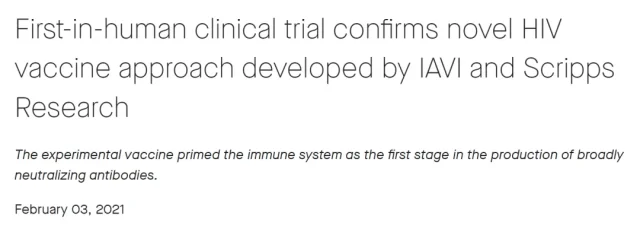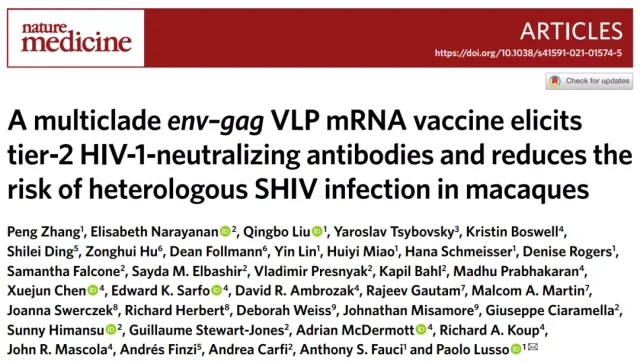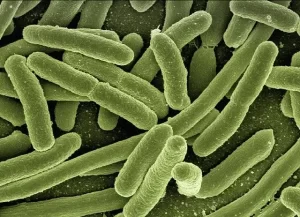Moderna: The first mRNA AIDS vaccine has been injected into humans
- Did Cloud Seeding Unleash a Deluge in Dubai?
- Scientists Identify Gut Bacteria and Metabolites that Lower Diabetes Risk
- OpenAI’s Model Matches Doctors in Assessing Eye Conditions
- UK: A Smoke-Free Generation by Banning Sales to Those Born After 2009
- Deadly Mutation: A New Monkeypox Variant Emerges in the DRC
- EPA Announces First-Ever Regulation for “Forever Chemicals” in Drinking Water
Moderna: The first mRNA AIDS vaccine has been injected into humans
- Red Yeast Rice Scare Grips Japan: Over 114 Hospitalized and 5 Deaths
- Long COVID Brain Fog: Blood-Brain Barrier Damage and Persistent Inflammation
- FDA has mandated a top-level black box warning for all marketed CAR-T therapies
- Can people with high blood pressure eat peanuts?
- What is the difference between dopamine and dobutamine?
- How long can the patient live after heart stent surgery?
Moderna: The first mRNA AIDS vaccine has been injected into humans.
AIDS highly harmful infectious disease caused by the Human Immunodeficiency Virus(HIV)The HIV virus can attack and severely damage the human immune system, so AIDS patients often suffer from secondary infections or tumors due to insufficient immunity, which also makes the mortality rate of AIDS patients extremely high.
According to UNAIDS, the number of people living with HIV and AIDS worldwide is as high as38 million, and the number is still growing rapidly.
As an infectious disease caused by viral infection, the development of highly effective preventive vaccines is the most important weapon in the prevention and control of AIDS.
However, in the 40 years since the discovery of AIDS, several AIDS vaccine research and development have been almost unsuccessful.
For example, in 2020, the AIDS vaccine jointly developed by Sanofi and GSK was declared a failure.
This vaccine was once considered the most promising AIDS vaccine, Ranked as the top ten clinical trial failures in the world in 2020 by Fierce Pharma.
Since the global pandemic of the COVID-19 epidemic, mRNA vaccines have shown great strength, which also brings new hope for AIDS vaccines.
A few days ago, Moderna and the International AIDS Vaccine Action (IAVI) announced that they have begun human trials of an mRNA AIDS vaccine .
The Phase 1 clinical trial is testing 56 HIV-negative healthy adults for safety and immunogenicity.
The goal of this experimental mRNA vaccine is to stimulate the production of broadly neutralizing antibodies (bnAbs) by specific B lymphocytes against multiple HIV variants currently circulating.
Of the 56 participants in this clinical trial, 48 received one or two doses of an mRNA-encoded antigen called eOD-GT8 60mer for an initial immunization, and 32 of them received an mRNA-encoded antigen called Core-g28v2 60mer.
The booster antigen was used for booster immunization, and the remaining 8 people received only the booster antigen.
The Phase 1 clinical trial will be completed in 2023, and then Phase 2 and 3 clinical trials will be conducted based on the results.
It is reported that the immunogen used in the vaccine candidate was developed by the International AIDS Vaccine Action (IAVI) and the Scripps Research Institute, and a phase 1 clinical trial of non-mRNA technology will be conducted in 2021.
This time, a new clinical trial was conducted using mRNA technology. They believe that the use of Moderna’s mRNA technology platform will greatly speed up the development of AIDS vaccines.
On February 3, 2021, the International AIDS Vaccine Action (IAVI) and the Scripps Institute announced promising results from a Phase 1 clinical trial of a new HIV vaccine they developed.
The vaccine candidate successfully stimulated the production of the rare immune cells needed to start producing antibodies and fight the rapidly mutating virus. Of the vaccinated participants, 97 percent developed a targeted immune response .

The HIV vaccine’s developer, Dr. William Schief , an immunologist at the Scripps Institute, presented the results at the International AIDS Society’s AIDS Prevention Research (HIVR4P) virtual meeting, saying: ” This study demonstrates the concept of a new HIV vaccine. , the concept can also be applied to other pathogens .”
Today, 38 million people worldwide are infected with HIV, and it is considered one of the most difficult viruses to fight against with vaccines — in large part because HIV can evolve into different strains to evade the immune system .
For decades, HIV researchers have pursued stimulating the immune system to create rare but powerful antibodies — the ” holy grail ” that can neutralize various HIV strains.
These special blood proteins, called ” broadly neutralizing antibodies ” (bnAbs) , can attach to spike proteins on the surface of HIV virions and disable them by binding to important but inaccessible regions that are found in different There is little variation between HIV strains .
To induce broadly neutralizing antibody production, the process must be initiated by triggering the right B cells, which have special properties that give them the potential to develop into broadly neutralizing antibody-secreting cells. “
In fact, in this experiment, this target cell represented only one in a million of the total number of B cells !
To get the right antibody response, the research team first needed to prime the right B cells, and the data from this trial confirmed that vaccine immunogens have this ability.
Notably, strategies that target B cells with specific properties are also referred to as ” germline targeting “—since these naive B cells display antibodies encoded by unmutated or “germline” genes.
This is a landmark study in the field of AIDS vaccines, demonstrating that it is practical to induce broadly neutralizing antibodies to fight HIV infection.
New design of immunogens, clinical trials and molecular B-cell profiling will provide new ideas for accelerating the development of HIV vaccines.
Moderna and the International AIDS Vaccine Initiative (IAVI) said in a joint statement that, given the pace of mRNA vaccine production, Moderna’s mRNA vaccine platform will provide a more flexible and sensitive approach to the design and testing of this AIDS vaccine.
Mark Feinberg , CEO of the International AIDS Vaccine Initiative (IAVI) , said that the process of developing an HIV vaccine is long and challenging, and having new immunogens and new tools may be a key breakthrough point for the rapid progress of HIV vaccines.
At present, Moderna has two mRNA AIDS vaccine research and development pipelines. This time, the first clinical phase is the pipeline numbered mRNA-1644 .
The other was developed in partnership with the International AIDS Vaccine Initiative (IAVI) and the National Institute of Infectious Diseases (NIVID) of the National Institutes of Health .

On December 9, 2021, Moderna and the National Institute of Infectious Diseases (NIAID) of the National Institutes of Health published a research paper in the top international medical journal Nature Medicine .
The study shows that the experimental mRNA AIDS vaccine using the same platform technology of the COVID-19 mRNA vaccine shows strong prospects in mice and non-human primates.
The vaccine is not only safe, but elicits the antibody and cellular immune responses needed to target HIV-like viruses.
Rhesus monkeys who received the experimental vaccine and boosted exposure to HIV-associated simian immunodeficiency virus (SHIV) had a 79% lower risk of infection compared with unvaccinated rhesus monkeys .

In addition, another mRNA vaccine giant, BioNTech , is also developing an mRNA AIDS vaccine, which is still in the preclinical stage.
References :
https://www.scripps.edu/news-and-events/press-room/2021/20210203-hiv-vaccine.html
https://www.nature.com/articles/s41591-021-01574-5
https://www.modernatx.com/pipeline
Moderna: The first mRNA AIDS vaccine has been injected into humans
(source:internet, reference only)
Disclaimer of medicaltrend.org
Important Note: The information provided is for informational purposes only and should not be considered as medical advice.



